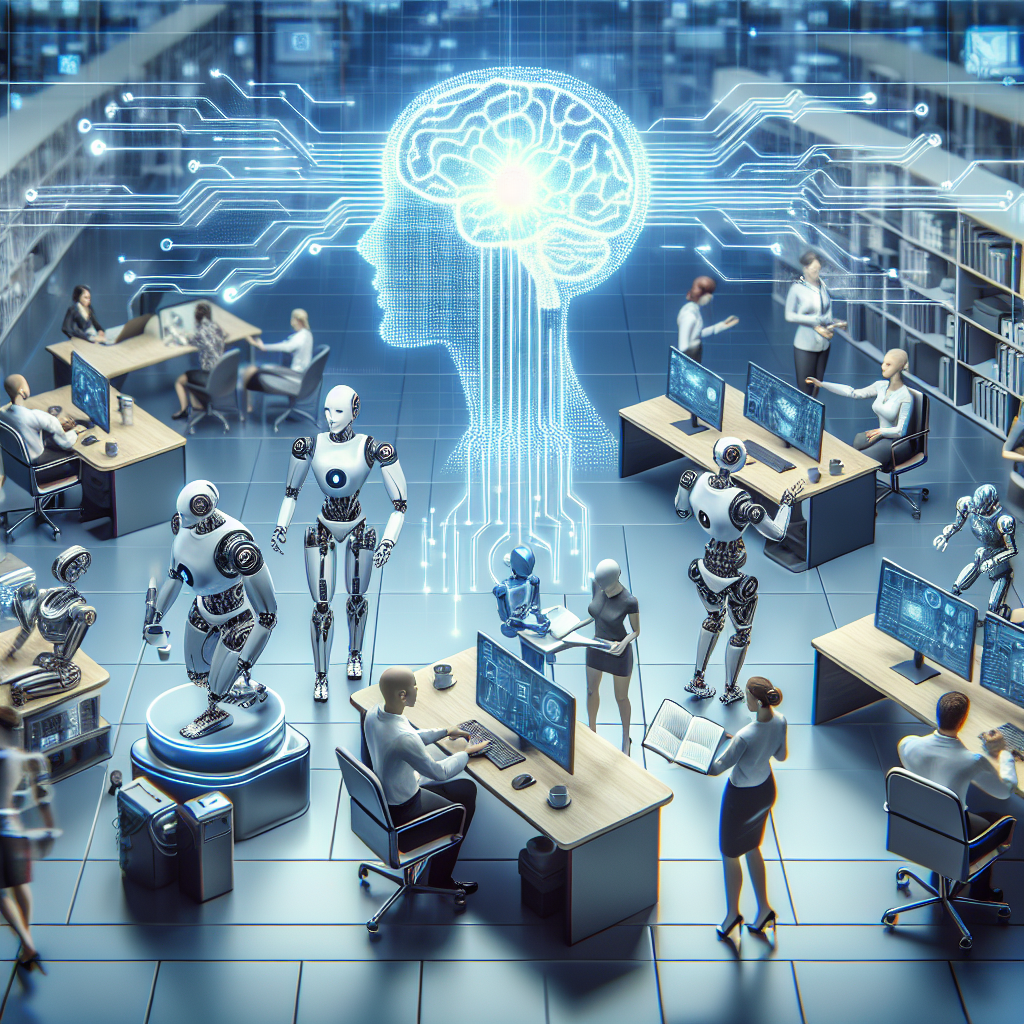Artificial General Intelligence (AGI) is a term that refers to a type of artificial intelligence that possesses the ability to understand, learn, and apply knowledge in a way that is similar to human intelligence. AGI is a topic of growing interest and concern as advancements in technology continue to progress at a rapid pace. One of the key questions surrounding AGI is its potential impact on the future of work. Will robots take over our jobs? This article will explore this question and discuss the potential implications of AGI on the workforce.
The Rise of Artificial Intelligence
Artificial intelligence has been a topic of fascination and speculation for decades, with the idea of machines possessing human-like intelligence appearing in science fiction literature and films. In recent years, advancements in machine learning and deep learning algorithms have brought AI technology closer to reality. From self-driving cars to virtual assistants, AI has already begun to transform various industries and sectors.
While narrow AI systems are designed to perform specific tasks or functions, AGI aims to replicate the general intelligence of humans. This means that AGI systems have the ability to think, reason, and learn in a way that is similar to human beings. The development of AGI has the potential to revolutionize the way we work, communicate, and interact with technology.
The Impact of AGI on the Future of Work
The potential impact of AGI on the future of work is a topic of debate among experts and researchers. Some believe that AGI will lead to the automation of repetitive and mundane tasks, freeing up humans to focus on more creative and complex work. This could lead to increased productivity, efficiency, and innovation in the workplace.
However, others are concerned that the rise of AGI could lead to widespread job displacement, as machines become increasingly capable of performing tasks that were once the domain of humans. Jobs in industries such as manufacturing, transportation, healthcare, and customer service may be at risk of being automated by AGI systems. This could lead to a significant shift in the labor market, with implications for employment, income inequality, and social stability.
It is important to note that the impact of AGI on the future of work will depend on a variety of factors, including the pace of technological development, the regulatory environment, and societal attitudes towards automation. While some jobs may be at risk of being automated by AGI systems, new opportunities for employment may also emerge in industries that require human creativity, emotional intelligence, and problem-solving skills.
Preparing for the Future of Work
As the development of AGI technology continues to progress, it is essential for individuals, organizations, and policymakers to prepare for the future of work. This may involve investing in education and training programs that equip workers with the skills and knowledge needed to thrive in a digital economy. It may also involve rethinking traditional notions of work and employment, as the nature of work continues to evolve in response to technological advancements.
In order to navigate the challenges and opportunities presented by AGI, it is important for stakeholders to collaborate and engage in dialogue about the future of work. This may involve developing policies and regulations that ensure the responsible deployment of AGI technology, as well as fostering a culture of lifelong learning and adaptation in the workforce.
FAQs
Q: Will robots take over all jobs in the future?
A: While the rise of AGI technology may lead to the automation of certain tasks and roles, it is unlikely that robots will take over all jobs in the future. Many jobs require human creativity, emotional intelligence, and problem-solving skills that are difficult to replicate with AI technology.
Q: How can individuals prepare for the future of work in the age of AGI?
A: Individuals can prepare for the future of work by investing in education and training programs that equip them with the skills and knowledge needed to thrive in a digital economy. This may involve developing skills in areas such as data analysis, programming, and critical thinking.
Q: What role can policymakers play in shaping the future of work in the age of AGI?
A: Policymakers can play a key role in shaping the future of work by developing regulations and policies that ensure the responsible deployment of AGI technology. This may involve creating guidelines for ethical AI development, as well as investing in programs that support workers who are displaced by automation.
In conclusion, the rise of AGI technology has the potential to revolutionize the way we work, communicate, and interact with technology. While the impact of AGI on the future of work remains uncertain, it is essential for individuals, organizations, and policymakers to prepare for the opportunities and challenges that lie ahead. By investing in education, training, and collaboration, we can navigate the future of work in the age of AGI and ensure a prosperous and equitable society for all.

